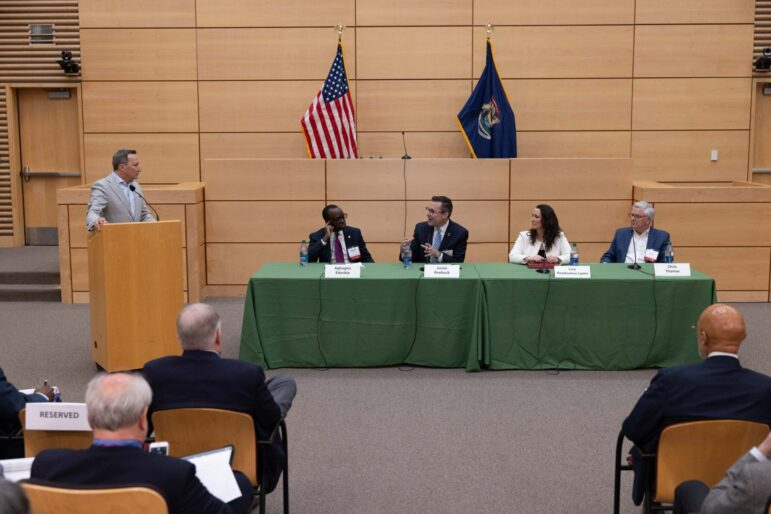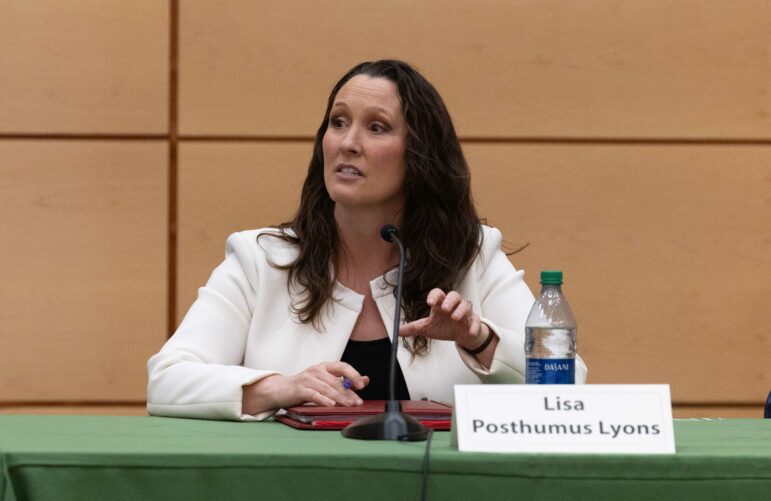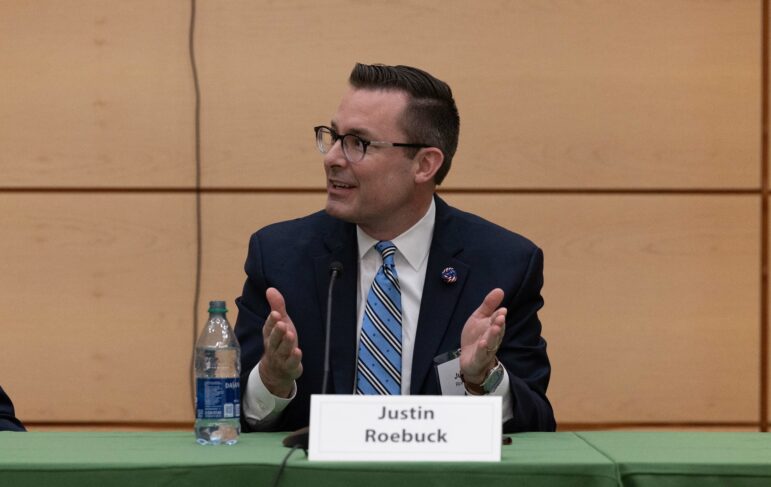
United Photo Works/American Bar Association
Panelists at an American Bar Association Task Force for American Democracy event discuss the potential impact of early voting in Michigan elections.By THEO SCHEER
Capital News Service
DETROIT — Justin Roebuck has been the Ottawa County clerk for nearly a decade, and he’s used to his job getting hectic on Election Day.
But in 2020, as the country was in the throes of a global pandemic and 57% of Michigan voters opted for absentee ballots for the presidential election, Roebuck said the big day went “so smooth.”
Now, as November 2024 approaches, Roebuck says he anticipates another peaceful Election Day — this time, for different reasons.
At a recent panel on election integrity hosted by the American Bar Association at Wayne State University Law School, officials discussed how early voting will help on Tuesday, Nov. 5. While how many people will vote early is still unknown, panelists said they anticipate a smoother, reliable Election Day.
Roebuck said that if a “catastrophic failure” occurs during an election, having the process spread over a longer period of time can help.
“You are eliminating certain risk factors and allowing that process to flow more smoothly over multiple days,” Roebuck said. “If you have a catastrophic failure on the first or second day of early voting, the worst case scenario is people come back the next day.”
The passage of Proposal 2 in 2022 guaranteed at least nine consecutive days of in-person early voting before Election Day, which Roebuck said will “lessen the strain” at polling places this November.
That is, if people use the option.
The early voting period ends on the Sunday before Election Day, and communities may choose to provide up to 29 days total., according to the Secretary of State’s Office. Early voting sites must be open for least eight hours each of those days.
“We have no baseline to know what to expect with early voting,” said panelist Lisa Posthumus Lyons, the Kent County clerk.
She said that during this year’s Feb. 27 presidential primaries – the first election in the state in which early voting was available – only 3% of Kent County voters used the opportunity.
The low turnout was “very frustrating, given the energy, the effort and expense that goes into early voting,” Lyons said.
But it’s too soon to write off early voting, Lyons said.
“I think it’s going to become more and more popular over the next — certainly the next couple of elections, but definitely the next several [election] cycles,” Lyons said.
David Becker, the co-founder of the nonpartisan Center for Election Innovation & Research in Washington, D.C. and the panel moderator, said he expects much higher early voting turnout this November.
He also said early voters typically don’t gravitate toward a particular party.
“As long as one side doesn’t try to delegitimize one of these forms of voting, they don’t really have a partisan effect,” Becker said.
The panel was one stop of the American Bar Association Task Force for American Democracy’s cross-country listening tour that focuses on civic engagement and trust in elections.
Speakers touted the security of elections. Becker said they’ve never been as transparent.
“We know who won the 2020 presidential election,” Becker said. “We also know who won the 2016 presidential election. And the winners of both those elections took office as was appropriate.
“This issue — that we don’t ever know who wins these elections because we don’t have adequate procedures in place — it’s just simply not true,” he said.
Becker called claims of widespread election fraud in 2020 baseless.
“When I think about the people who ran that election, I think we should fund them a parade,” Becker said. “They’ve been subjected to pretty much endless abuse, threats and harassment for well over three years.”

United Photo Works/ American Bar Association
Kent County Clerk Lisa Posthumus Lyons.
United Photo Works/ American Bar Association
Ottawa County Clerk Justin Roebuck